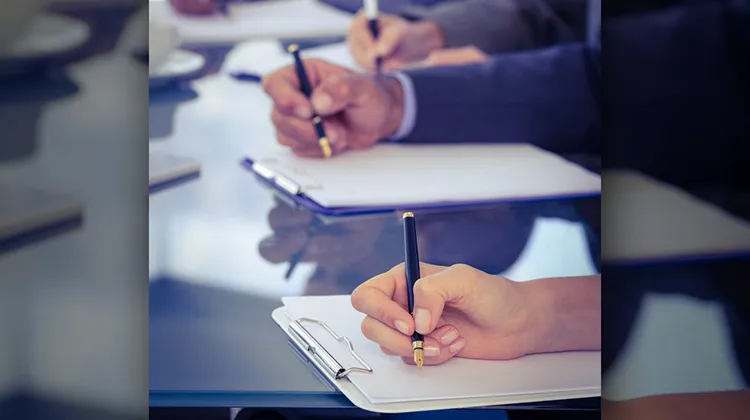Take Note: Handwritten Notes Work Best. Want to Remember It? Write It, Don’t Type It
I find this very interesting, and maybe you will, too. But just this week I noticed still another article talking about the downside of taking notes by computer instead of taking them by hand. Laptops, notepads, tablets and smartphones have dominated our schools and workplaces for many years now. But it turns out that for taking notes in classes or at meetings, you’d best put away that electronic notebook; grab an “old school” notebook and a pen, instead. You’ll get better results.
This week it was Fast Company attesting to the limits of a laptop in helping you remember what’s important. My favorite line was “Don’t use a laptop to take notes, wherever you are.” Naturally, I’m partial to print and paper. But apparently so is the human brain.
What the Research Shows
The article is based, in part, on research studies that compared quiz results with note-taking practices. In summary of those results:
- Students who took notes by hand did substantially better than those who do so with a computer.
- When students taking notes with a computer were warned to concentrate more because of this fact, they still fared less well than their paper-and-pencil-wielding classmates.
- When students were allowed to study their notes for 10 minutes before the quiz, those who take notes longhand did better once again.
Why Notes on Paper Perform Better
The article presents an interesting hypothesis as to why such results occur so consistently. I would have guessed simply that such notes tend to be lost in the avalanche of digital information coming at us on the screens we stare at all day.
But an examination of the notes taken by students during the studies showed another factor likely responsible. Those who took notes with a laptop seemed, consciously or unconsciously, to try to capture the lecture or presentation verbatim, writing down essentially every word.
Those taking notes longhand, however, realized that was not possible. Thus, they were forced to be more judicious in what they wrote down. That involved engaging seriously with the information being presented and making critical decisions as to what was most important to retain.
In a sense, the learning had already started.
A Better Method at Work
These things don’t apply only to students in school. Think about staff meetings. Status meetings. New product download sessions. Client input sessions. All require the quick transmission and recording of plenty of critical information. The notes taken by associates, employees, partners and others will become vital marching orders to ensure that a project is completed correctly and in a timely fashion.
Hand-written notes may require prioritizing important information on the spot; brains may engage sooner. It is logical to think this provides a better grasp of the project parameters almost immediately, and a solid head start in achieving project objectives.
Could This Build YOUR Productivity?
Maybe there’s a tip for us and our businesses in these results. It might be worth a couple of “no laptop” meetings just to see if it has an impact. I can’t predict the long-term results, of course, but I’d be willing to bet there would be a more engaged, questioning group of people around the table. And they’d be discussing the issues with interest, rather than staring at their electronic screens taking dictation.
I’d like to know what you think about this. If you want to share your thoughts, you can contact me. We can also discuss your needs and how our printing services can help build your business. If you’re busy at the moment, why not leave yourself a note to do it later? You could do that on your smartphone, but it might be smarter to write it down on a piece of paper. Just sayin’…


